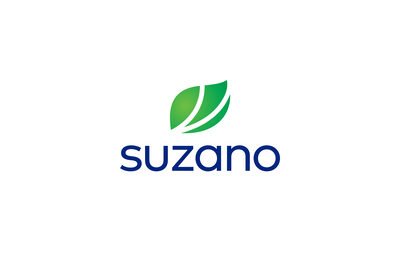 The second edition of the Bangladesh Circular Economy Summit began in Dhaka on Tuesday, bringing together fashion industry leaders, organisations, and government representatives to exchange insights and expertise aimed at advancing circularity within the apparel and textiles sector in the country. The Summit, organised by the Bangladesh Apparel Exchange (BAE) in collaboration with German development cooperation agency GIZ and in association with the Embassy of the Kingdom of the Netherlands in Bangladesh at Radisson Blu Water Garden, Dhaka spotlighted the importance and ways of transitioning from a linear economic model to one that prioritises resource efficiency and waste reduction.
The second edition of the Bangladesh Circular Economy Summit began in Dhaka on Tuesday, bringing together fashion industry leaders, organisations, and government representatives to exchange insights and expertise aimed at advancing circularity within the apparel and textiles sector in the country. The Summit, organised by the Bangladesh Apparel Exchange (BAE) in collaboration with German development cooperation agency GIZ and in association with the Embassy of the Kingdom of the Netherlands in Bangladesh at Radisson Blu Water Garden, Dhaka spotlighted the importance and ways of transitioning from a linear economic model to one that prioritises resource efficiency and waste reduction.
The discussions and engagement at the summit aimed at propelling the transition from a linear to a circular model in Bangladesh’s apparel and textile industries.The summit began with an inaugural ceremony, followed by four insightful plenary sessions, three engaging panel discussions, and an innovative breakout session. Through these platforms, participants explored strategies to accelerate the adoption of circular practices within Bangladesh’s apparel and textile industries.
Jahangir Kabir Nanak, Minister for Textiles and Jute attended the occasion as the Chief Guest.
Siddiqur Rahman, former President of BGMEA, Thijs Woudstra, Deputy Head of Mission, Embassy of the Kingdom of the Netherlands in Bangladesh, Jan Janowski, Deputy Head of Mission, Embassy of Germany in Bangladesh, and Mostafiz Uddin, Founder and CEO of Bangladesh Apparel Exchange were present as the special guests. In his speech, chief guest Jahangir Kabir Nanak said “Bangladesh apparel industry has come a long way in terms of sustainability. For the development of our country, it largely depends on the apparel and textile industry.”
“There have been tremendous safety improvements in the industry. The country’s apparel industry is taking a lead in responsible business. While we are going forward, we need to ensure it is sustainable. Collaboration will be key for circularity and progress. We have only one earth. It is our responsibility to protect it also for our future generation. We have to ensure optimum use of our resources,” he added.
Special guest former BGMEA President Siddiqur Rahman said, “Collaboration between brands and manufacturers is very important to promote the circular fashion. We are your partners. I’m requesting all the brands, please increase your price a little. Otherwise, we cannot survive.”
“Bangladesh has come a long way in circularity and sustainability. The journey of our industry was not smooth. We overcame every challenge. Our industries maintain the highest standards. The apparel entrepreneurs are adopting sustainable practices and there are more than 200 certified green garments and more 500 are awaiting certifications. Bangladesh is also focusing on a circular economy by reducing materials use and focusing more on recycling. We require support from the developed countries for know-how and technology sharing on circularity. Bangladesh is a sustainable and reliable partner,” he added.
Thijs Woudstra, Deputy Head of Mission of Netherlands Embassy, stated, “To move one step forward towards circularity, we need to extensively and contextualise the ways to integrate robust visibility systems throughout the supply chain. This will ensure the formation and quality of materials, meeting the regulations and consumer demand for increased transparency from environmental factors.”
He further said, “The garment industry of Bangladesh is a powerhouse. By working together, we can unlock the potential of circularity in the economy.”
Jan Janowski, Deputy Head of Mission of Germany Embassy, opined, “It is high time for Bangladesh to think about more ambitious reforms. Certainly, businesses are often leading the way as pioneers in different sectors. But of course, institutions, governments, and cities also play a very crucial role in creating and enabling the conditions for a circular economy. They can set the direction and they can also be the drivers of innovation and investment.”
“Investing in sustainable production of the circular industries is not only a responsible business decision but also a strategic one that can position Bangladesh further as a leader in sustainable manufacturing and enable industries to play in the global marketplace including Germany and EU,” he added.
He further said, “The circular economy tackles one of our greatest challenges in the world: climate change. Thankfully, in Bangladesh there are many wonderful and positive initiatives being taken in terms of circularity. For Bangladesh, the focus has to be on RMG and I am happy to see many of you are here working on that. I am happy that this event today focused on the challenges in circularity.”
Mostafiz Uddin, Founder and CEO of Bangladesh Apparel Exchange, said, “In 2016, it was the first time I wanted to do a study on waste percentage, and it was so difficult to find out the waste percentage in Bangladesh. But now everyone knows what the waste percentage in Bangladesh is. And it makes me so proud. The Bangladesh apparel industry has come so far that you can see that day by day we are improving more and more.”
“I would ask all of you to please cooperate. Please join this movement, and one day you will see how Bangladesh becomes a leader in sustainability and circularity. Our government, private sectors, partners, and all stakeholders are working hard towards a shared vision. The change starts from you and me. We all have a big role to achieve a collective vision for Bangladesh,” Mr. Mostafiz added.





















